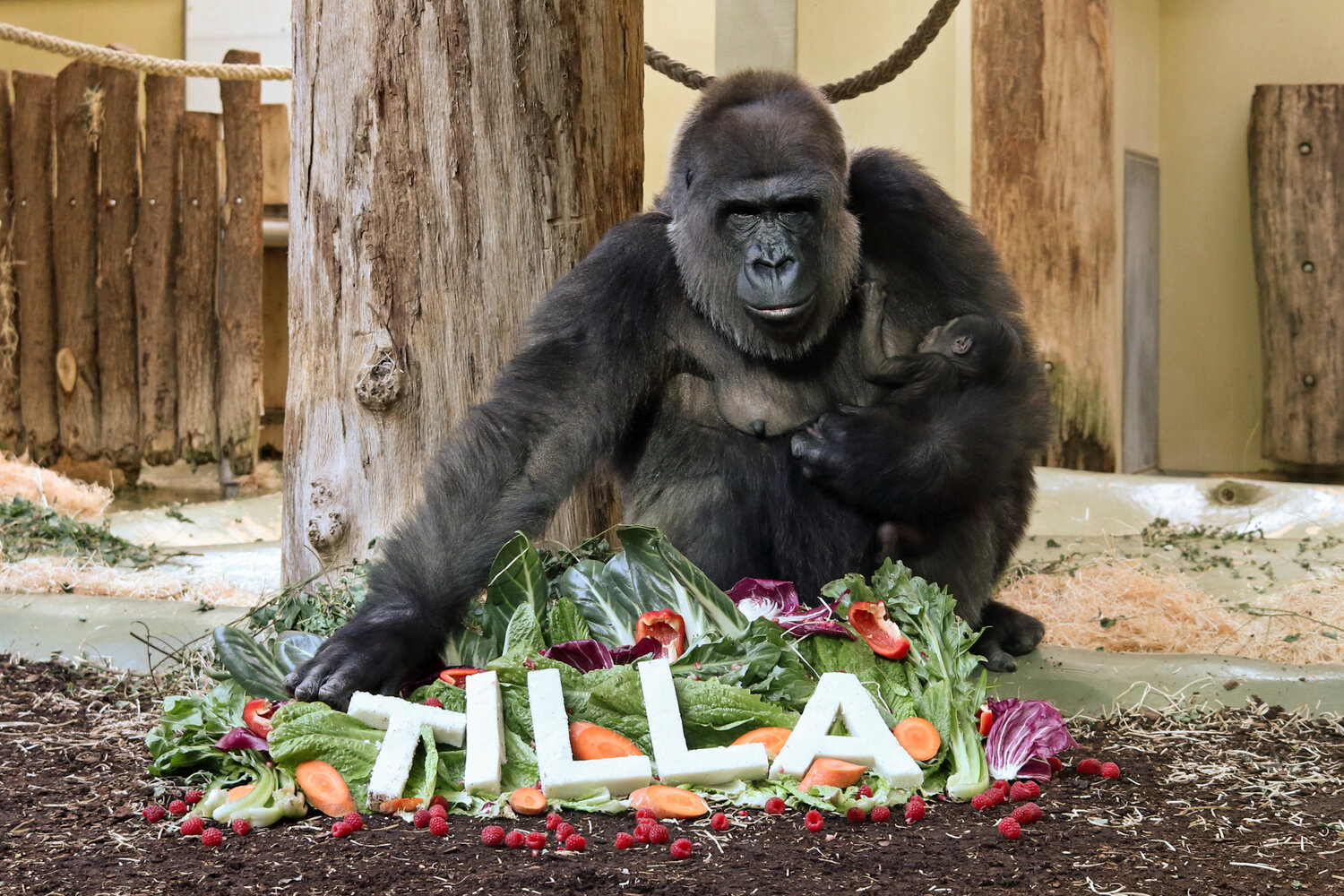Tilla needs a villa
All over Germany, from Berlin to Bonn and from Breisgau to Buxtehude, people have spent the past few weeks coming up with suitable names for Zoo Berlin’s newborn female gorilla. Many media outlets got involved in the name search, as news of Berlin’s first gorilla baby in 16 years spread throughout the region, the nation – and even the rest of the world. It’s no wonder, then, that Zoo Berlin received more than 17,000 name suggestions within seven days – 15,000 via social media channels alone. Many of the ideas made reference to the current situation, including “Hope” and “Covi”. There was even a suggestion to name her “Frau Merkel” after the German Chancellor.
“We were overwhelmed by the number of submissions and would like to express our sincere thanks for the many, in some cases very personal, name suggestions,” says Zoo and Tierpark Director Dr Andreas Knieriem. “It was no easy task, but we finally decided to name our little gorilla Tilla.” The animal keepers marked the occasion by treating the gorilla family to a special feast. “Contrary to what many people assume, a gorilla’s diet consists mostly of salad and vegetables,” explains Zoo veterinarian Dr André Schüle. “The buffet we laid on for Bibi, Sango and the rest of the family featured rice, raspberries, pomegranate, peppers and carrots and was a real treat for the eyes as well as the belly.”
Fundraising campaign for a new Primate House
With coronavirus-related losses in the tens of millions, last year dealt a massive financial blow to Zoo Berlin. As a result, it is now an even greater challenge to raise funds for upcoming construction projects like the new Primate House. Zoo Berlin therefore needs outside support to realise its goal of giving the primates a more spacious home with natural features as soon as possible. Donations are currently being collected for Tilla and her family under the campaign motto “My gorilla needs a villa at the Zoo”. Each and every contribution is greatly appreciated: www.zoo-berlin.de/gorillatilla
Background information
Following a gestation period of about eight and a half months, a female gorilla was born at Zoo Berlin on the night of 15 February. The last time a gorilla came into the world here was 16 years ago. For the first few months, the infant is completely dependent on her mother’s care and she will live off her milk for four to five years. Mother Bibi (24) spent the first nine years of her life in a gorilla family at Apenheul Primate Park in the Netherlands. During this time, she observed other gorillas taking care of their young, which provided her with a good example of how to raise her own infant. This is the first offspring for both Bibi and Zoo Berlin’s silverback Sango (16). As well as Sango and Bibi, Zoo Berlin’s gorilla family includes females Djambala (19) and Mpenzi (35). Elderly Fatou (63), the oldest known gorilla in the world, is spending her retirement in a separate, neighbouring habitat. During these crucial early days, only the animal keepers are permitted to enter the Primate House – which is currently closed to visitors anyway due to coronavirus restrictions.
Gorillas are the largest and heaviest of the great apes. An adult male can measure up to two metres when standing upright and weighs about 220 kilos. On the recommendation of the European Endangered Species Programme (EEP), male gorilla Sango moved from Pairi Daiza in Belgium to Zoo Berlin in February 2019 to complete Berlin’s gorilla family. Tragically, these remarkable herbivores are threatened with extinction in the wild because of habitat destruction and illegal hunting.
